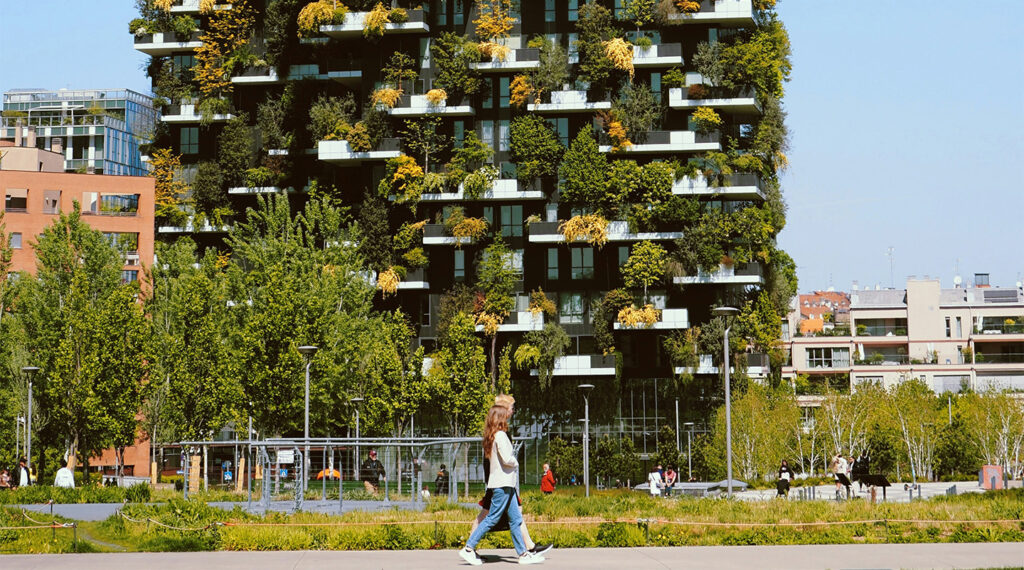Philanthropy’s role in ensuring a just and fair transition through the EU Cities Mission

Achieving climate-neutrality by 2030 is an ambitious goal that demands a collective effort from a wide range of stakeholders, coupled with the ability to translate these efforts into concrete actions at the local level. Foundations, with their unique position as catalysts for change, are well-positioned to play a pivotal role in this process.
Many of the leading European foundations are deeply rooted in local contexts, functioning as key intermediaries and “local antennae” that can effectively detect and respond to regional needs. With long-standing experience in funding initiatives across the social, environmental, research and innovation sectors, foundations possess both the expertise and the resources to collaborate with civil society organisations, local communities and cities. In doing so, they can help drive the achievement of the ambitious targets outlined in the EU Mission on 100 Climate-Neutral and Smart Cities by 2030.
At the general strategic level, foundations’ role could be relevant in helping to overcome specific weaknesses and bottlenecks of programme implementation at the local level. The implementation of the European Commission’s Resilience and Recovery plans in some European countries suggests the existence of what one could call “valleys of death”, an analogy to the terminology used in innovation.
One such “valley” is the gap between setting an objective and organising it into a well-defined and effective set of fundable and feasible projects, able to deliver the expected results. For example, objectives like setting up a city digital twin or reorganising the municipal transport/energy/waste management system sit atop the rise on one side of the valley, while the implications in terms of the consensus and change of citizens’ behaviour at the individual and collective level sit atop the other.
In this respect, foundations can support cities in reaching experts from the project design phase (e.g. engineers, legal professionals, etc.) down to project management and reporting. The level of support could be nuanced from just providing funds for a very specific expertise to be added to the municipal staff, to a complete externalisation of the activity. This is a real need. Competences are not always easy to access in cities’ staff, and in most cases the budget for preliminary or prospective activities is lacking. The support of a foundation at this stage can help ensure that cities have a well-structured preliminary project, which is often necessary to secure public funds.
A second “valley” could relate to the opportunity of identifying possible sources of private funding for a project. The elements of the project in the design phase can be shaped to make the project more interesting or feasible for an investor (e.g. an institutional investor) or a company to (co)finance it. In this case, foundations can activate finance practitioners and/or communities of investors working in Public-Private Partnerships (PPPs) or blended schemes.
An illustrative example of such an initiative is the “Next Generation WE” call for proposals, launched by Fondazione Compagnia di San Paolo in the northwestern region of Italy. This programme provides approximately €10 million to local municipalities with the aim of supporting them in securing public funding; efficiently allocating and managing these resources; assessing their impact; ensuring transparent financial reporting; and fostering the design and implementation of projects that demonstrate long-term sustainability, both socially and financially.
Our recent analysis underscores the critical role that foundations can play in bridging the gaps between the high-level climate objectives of the Cities Mission and their practical implementation at the local level. Foundations’ ability to provide expertise, financial support and strategic guidance makes them valuable partners in ensuring that ambitious climate targets translate into actionable and well-structured projects. Moreover, the data on European philanthropy and the knowledge of the field further enhance the potential of having foundations as key partners in the implementation of the Cities Mission. They can take a broad view on decarbonisation, embracing technical solutions that include cultural and social dimensions and adopt vision-based and values-driven funding models that support ecosystems rather than isolated projects.
The publication is the result of an extensive work conducted by Fondazione Compagnia di San Paolo and Philea. Fondazione Compagnia di San Paolo, with its longstanding tradition of fostering cultural, social and economic development in the northwest of Italy, brings a deep understanding of the philanthropic landscape and its impact on society.
Meanwhile, Philea, as a leading network of European foundations and philanthropic organisations, provides a broad perspective on emerging trends, best practices, and collaborative approaches in the sector, having facilitated thematic peer-learning networks among its members (notably on climate, democracy, equality and transversal issues). Their combined knowledge and resources have ensured a rigorous and comprehensive examination of the contribution of philanthropy to the EU mission.
This first-of-its-kind exploration and collaborative effort seeks not only to define the role of philanthropy in achieving EU climate goals, but also to map the projects, local actions, annual programmes and overarching visions that foundations actively foster on a daily basis. Through this detailed examination, the work seeks to unravel the multifaceted contributions of philanthropic organisations, shedding light on their strategic approaches, sustained efforts and critical influence in shaping both local and global climate agendas. The study sets out more than just a framework – it establishes an intention, a bold vision that can inspire not only the philanthropic sector but also governments and civil society organisations. In doing so, it highlights the transformative potential of strategic philanthropy, encouraging cross-sector collaboration in the pursuit of a more sustainable and resilient future.
Authors


